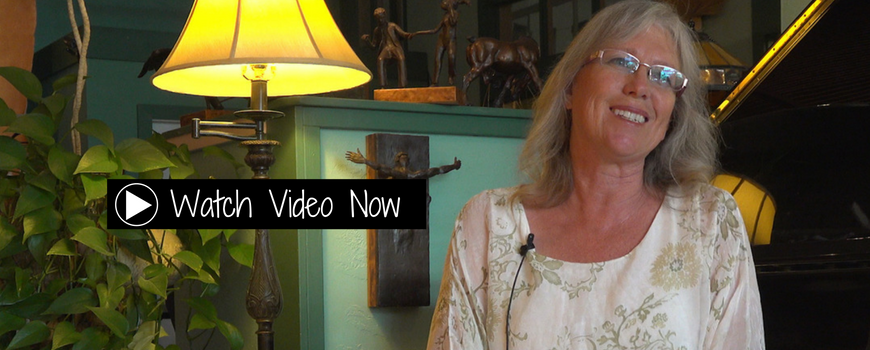For years, being tone deaf meant being relegated to mouthing the lines of a song, or freezing up the moment you are thrust into the limelight and expected to sing Happy Birthday on the spot.
Yet stemming from an accidental discovery she made in her classroom nearly twenty years ago, musician and music educator Laurel Pumphrey has developed a method that helps those who suffer from tone deafness.
This methodology, called The Pumphrey Method®, is a specialized music training system, otherwise known as amusia therapy. It hones-in on pitch and rhythm deficits students may have, and helps the student develop a musical ear.
“This is actually really life-changing for individuals,” she said. “There’s something that happens to somebody when they’re told, ‘You can’t be in music. Don’t sing. Just mouth the words’. And the way I see it, it’s as if you have someone that is late to walking. We don’t tell that person, ‘You’re going to be a crawler your whole life…’; we find a way to bring them up to a skill level so they can live their lives with confidence.”
The method in particular is a unique one, as tone-deafness has not been a common area of study until the last few decades, and even then, there are not many known therapists out there that address it in the manner Pumphrey does.
“As far as I know, I’m the only therapeutic method at this point that exists for this specific issue,” Pumphrey said. "I do not know of anything like this yet in the world."
In that classroom twenty years ago, Pumphrey observed that her wildly out-of-tune students were one-by-one slowly “slipping into tune” and after two years, every student was able to accurately match pitch and sing in tune.
“I hadn’t heard this was possible,” she said. “I hadn’t had any training that taught me about that, so that’s really where it started. I thought, oh, this is possible. I saw this happen! And that was 20 years ago.”
Pumphrey then opened a private voice studio, continuing her own vocal studies with international opera singer Kristine Ciesinski. As students entered her studio that struggled with this issue, she thought back to her earlier classroom and started to try and figure out how to help these students.
Over time a method was born. Pumphrey imagined she would either be a high school choral director or would be singing on the stage. She never imagined that this would become her life's work.
The method is appropriate for ages ten to over seventy, and it focuses on three areas: the ability to listen and focus on tones, cognitive training, and neuromuscular patterning. Pumphrey explains that the process is light-hearted enough that it removes the negative feelings of judgement and discomfort that tone-deaf people may associate with singing.
“It just strips that all away and reaches right to their level and you slowly build up these skills,” she said.
Within two to three years, students have the potential to transform their off-tune vocals into having a voice that can participate in a community choir.
Pumphrey is now directing her attention toward passing on the method to other teachers so that this knowledge can reach a wide expanse of aspiring musicians.
She held her first teacher training in Boise in March and will be holding two workshops in Pocatello this summer. The March workshop thrived, according to Pumphrey, and the feedback she has received was highly positive, with teachers telling her their students are gaining confidence, improving and enjoying the exercises.
A few of the comments she has received are “This is life-changing" and "I used to put a band-air on this issue, but now I have real tools to address this”. Pumphrey explained that this is what influences her to pursue getting the method out there.
“For me, that’s the reward,” Pumphrey said. “Putting [the method] into the hands of other educators and having them have success. That’s kind of my new passion.”
For anyone interested in attending her teaching training, the Level I workshop will take place on July 18th and 19th from 9 am to 5 pm. Level II will take place on August 20th and 21st , from 9 am to 5 pm. She will be holding summer workshops in Boise as well, with Level I on July 25th and 26th from 9 am to 5 pm, and also Level II on August 15th and 16th from 9 am to 5 pm.
For workshop information contact Laurel at 208-234-7464 or email her at laurel@pumphreymethod.com. More information on the method can be found at https://www.pumphreymethod.com.
Idaho State University’s Continuing Education and Workforce Training (CEWT) is interested in supporting businesses and entrepreneurs with opportunities to get their story out there. For more information, visit cetrain.isu.edu or call 208-282-3372.

-1.png)

